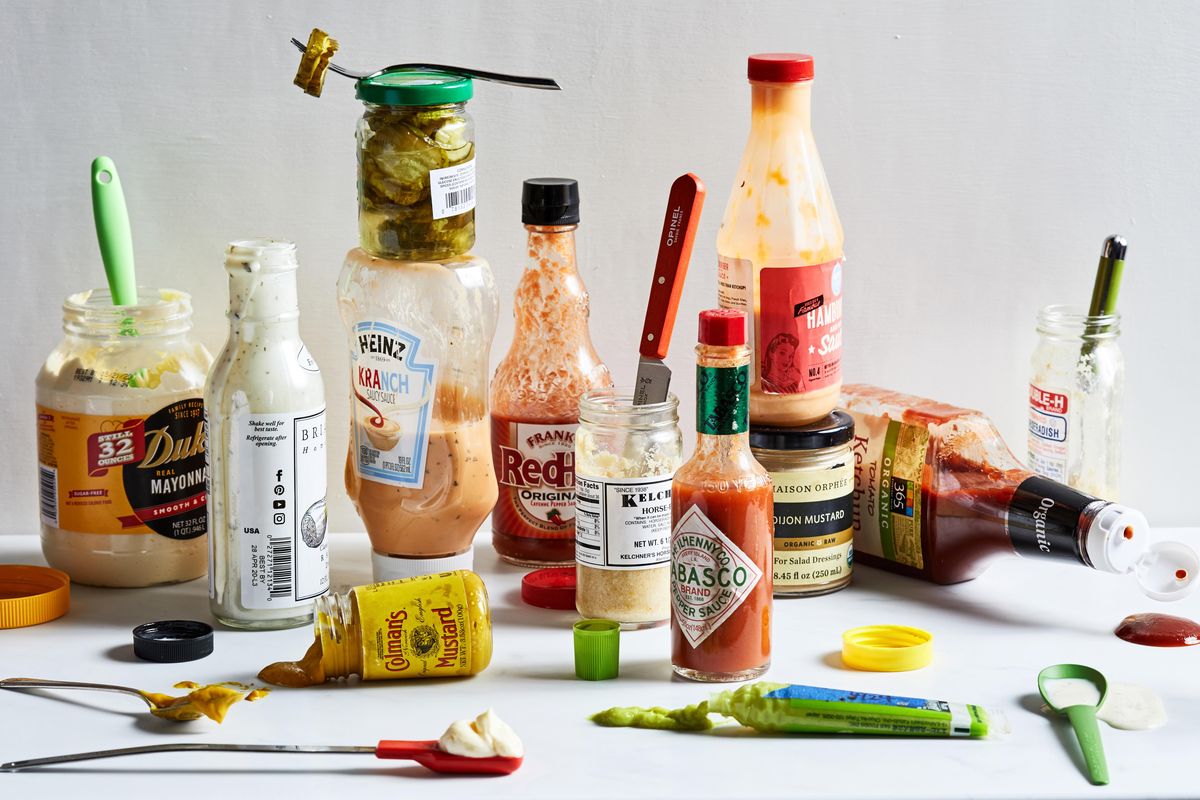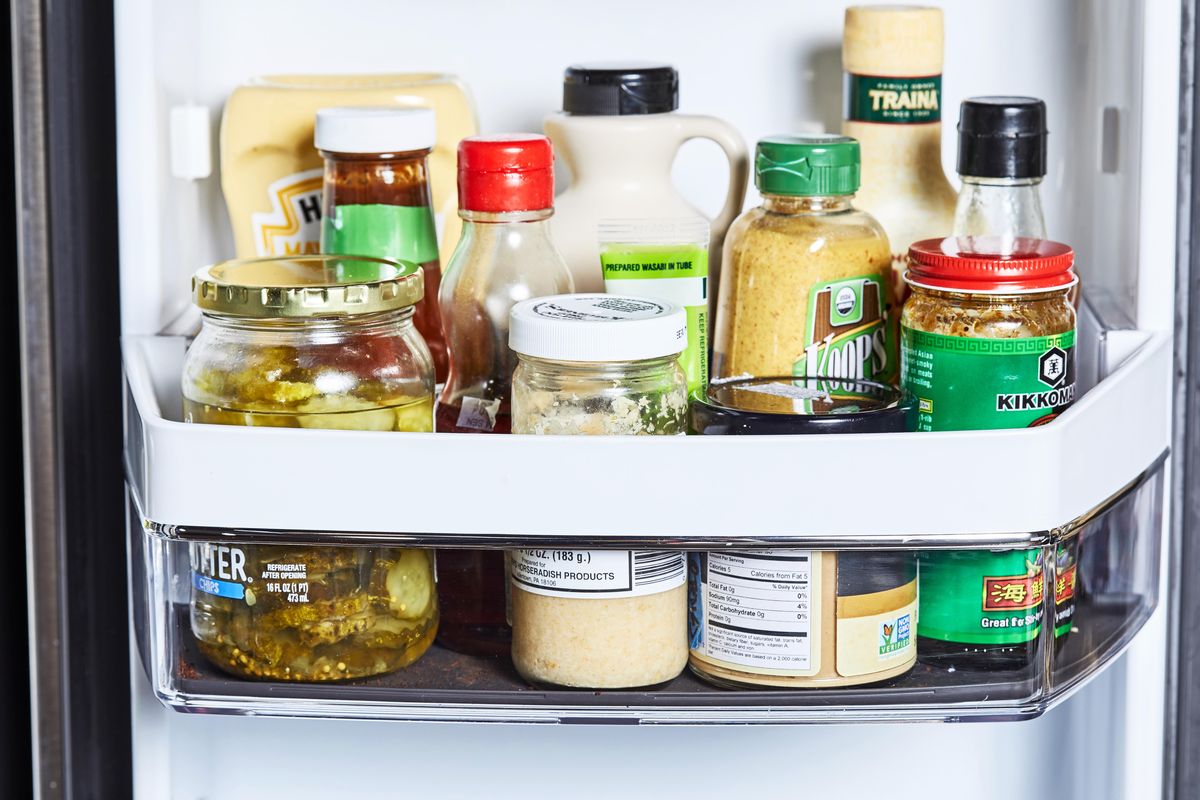Here’s how long those condiments in your fridge and pantry are supposed to last
Refrigeration can extend the life and quality (color, flavor, texture) of items, such as hot sauce and peanut butter, that also could be stored in the pantry. (Stacy Zarin Goldberg / For The Washington Post)
We’re all spending a lot more time at home now sifting through pantries and refrigerators. Produce and meat we know are use it or lose it. But what about all those condiments? You know, the kind of stuff you dip into occasionally – the kind of stuff you are definitely not going to make a special trip to the store for, especially now with the need for social distancing during the coronavirus outbreak.
Before getting into the specifics of how long these various items will last, here are a few tips:
Keep track of how long the bottle or jar has been open. It might be too late for what’s already in your pantry or refrigerator, but in the future you can make a concerted effort to label the container with the date you opened it. Write it on with permanent marker, slap on a piece of painter’s or masking tape, whatever. Don’t rely on the best-by dates since that tells you nothing about when you actually opened the food.
According to the Ohio State University Extension, items that can be stored at room temperature – either before or after opening – should be in a cool, dark place. Avoid warmer cabinets near the oven/cooktop, dishwasher and refrigerator exhaust.
Refrigeration can extend the life and quality (color, flavor, texture) of items, such as hot sauce and peanut butter, that also could be stored in the pantry. Here’s what the government says with regard to shelf-stable mustard, mayo, barbecue sauce, ketchup, soy sauce, teriyaki sauce, Worcestershire sauce and salsa: “Refrigeration ensures that commercial sauces and condiments stay fresh for a longer period of time. … Quality, not safety, is the reason the labels on these products suggest that they be refrigerated after opening.”
Use common sense. Below you’ll find the government-recommended storage times, but we’re realists. We know most of us keep things around longer than the guidelines suggest. They are a helpful baseline, however. If you decide to go beyond them, be attentive to signs of spoilage – mold, suspicious odors, etc.
And now to the details. These guidelines have been pulled from the FoodKeeper database (also available as a phone app) at foodsafety.gov and this chart from the Kansas State University Cooperative Extension Service. Unless otherwise noted, each category includes how long the unopened product can be stored in your pantry unopened, followed by suggested refrigeration time after opening.
Barbecue sauce: 1 year; 4 months (see note above on shelf-stable).
Chutney: 1 year; 1 to 2 months.
Hoisin: 18 to 24 months; 3 to 6 months.
Honey: Consume within 2 years (store in pantry).
Horseradish: 12 months when stored in refrigerator; 3 to 4 months refrigerated after opening.
Hot sauce: 9 to 12 months; 6 months in the pantry after opening, although refrigeration will better retain heat.
Jams, jellies and preserves: 6 to 18 months; 6 to 12 months.
Jarred pesto: 6 to 9 months; 7 days.
Jarred spaghetti sauce: 18 months; 4 days.
Ketchup: 1 years; 6 months (see note above on shelf-stable).
Maple syrup: Consume within 12 months if stored in pantry; refrigeration will extend life.
Mayonnaise: 3 to 6 months; 2 months (see note above on shelf-stable).
Mustard: 1 to 2 years; 1 year (see note above on shelf-stable).
Oyster sauce: 18 to 24 months; 3 to 6 months.
Peanut butter: 1 year when stored in refrigerator and 3 to 4 months refrigerated after opening (natural); 6 to 9 months when stored in pantry or 12 months stored in refrigerator, 2 to 3 months in pantry or 3 to 4 months refrigerated after opening (commercial, stabilized).
Pickles: 1 year; 1 to 3 months.
Relish: 30 months; 9 months.
Salad dressing: 10 to 12 months; 1 to 3 months.
Salsa: 1 year; 1 month (see note above on shelf-stable).
Soy sauce or teriyaki sauce: 3 years; 1 month.
Tahini: 1 year; 3 weeks.
Vinegar: Can last essentially indefinitely, though KSU suggests 2 years in the pantry unopened and 1 year opened.
Worcestershire sauce: 1 year (unopened or opened) in pantry.

